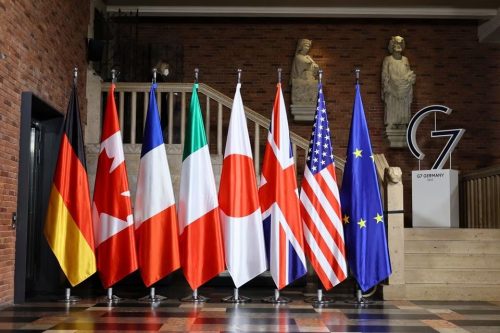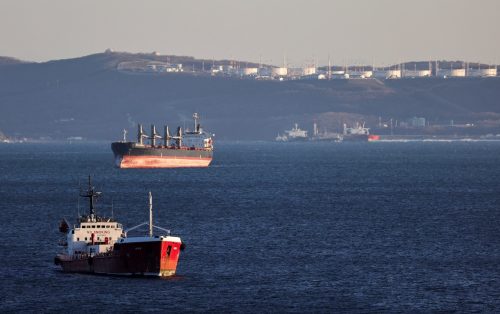It seems that the ceiling of Russian oil prices will not witness any additional burdens that may be imposed by the countries allied against Moscow, which were scheduled to review the restrictions imposed this week.
And Western officials announced today, Tuesday, March 21 (2023), that it is unlikely that the European Union and the Group of 7 will hold their meeting to adjust the price ceiling during the current week, according to Reuters.
The Group of 7 was scheduled to hold its meeting to review the Russian oil price ceiling in mid-March, 3 months after it was imposed on December 5 (2022), according to what was seen by the specialized energy platform.
There is no desire

Two EU officials and a G-7 official said the European Commission told ambassadors over the weekend that the G-7 had no interest in an imminent review of Russia’s oil price ceiling.
Some European Union member states, including Poland, have sought to reduce the level of the Russian oil price ceiling, imposed by the Group of Seven, with the aim of imposing more restrictions on the revenues that Moscow can use to finance its war in Ukraine.
The Group of 7 had capped Russian seaborne crude exports at $60 a barrel, a level designed to be lower than the price of oil on global markets, which limits Russia’s revenue from selling oil, according to the specialized energy platform.
According to the sources, the international group had designed a ceiling for Russian oil prices to determine oil revenues for Moscow, but at the same time it took into account the oil markets’ avoidance of exposure to the shock of the global supply shortage.
Make future changes
An official in one of the G-7 member states, who asked not to be named, said that the group has retained its permanent right to support future changes in price ceiling levels, to achieve its dual goals, if market and economic conditions so require, according to Reuters.
Experts expected a review of the Russian oil price ceiling – set at $60 a barrel at a time when global oil prices were trading at $90 a barrel – especially with the decline in the price of Brent crude to about $73 a barrel, today, Tuesday, March 21, 2023.

It is noteworthy that the measures imposed by the Group of 7 prohibit companies from providing transportation, insurance and financing services for Russian crude oil and oil derivatives, if they are sold at prices higher than the predetermined maximum.
On December 5, 2022, the European Union stopped its imports of Russian crude oil, delivered by sea, while America and Britain imposed similar restrictions, according to information seen by the specialized energy platform.
And during the month of February 2023, the International Energy Agency announced that Moscow’s revenues from oil and gas exports decreased by about 40% in January, due to the restrictions imposed by the Russian oil price ceiling and Western sanctions.
related topics..
Also read..

Leave a Reply